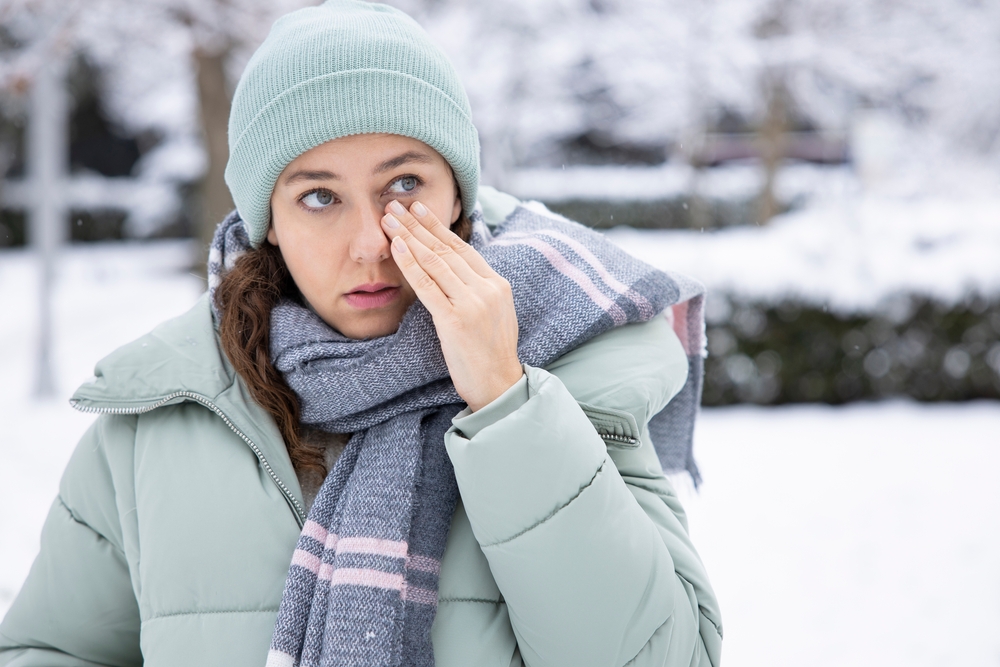
Allergies and dry eye are not just a summer phenomenon; they can strike at any time of the year, including during the winter months. The dry, cold air of winter can exacerbate these conditions, leaving your eyes red, itchy, and uncomfortable. Understanding these conditions and how they are affected by the winter season is the first step towards managing them effectively.
Understanding Allergies and Dry Eye in Cold Weather
Cold weather can exacerbate allergies and dry eye for several reasons. Firstly, as the temperature drops, indoor heating systems are often turned up. This dries out the air, leading to a lack of necessary moisture for our eyes and skin. This dryness can cause or worsen dry eye symptoms.
Secondly, the winter season often means more time spent indoors. This can increase exposure to indoor allergens such as dust mites, mold, and pet dander. These allergens can cause allergic reactions, including eye allergies. Furthermore, the cold weather can also cause blood vessels in the eyes to constrict, leading to dryness and discomfort.
Ways to Combat Winter Allergies and Dry Eye
Managing allergies and dry eye in the winter season requires a two-pronged approach: minimizing exposure to allergens and maintaining eye moisture.
Minimizing allergen exposure can involve steps like regular cleaning to reduce dust, using dehumidifiers to control mold, and avoiding known food allergens. For those with pet allergies, it might be necessary to limit contact with pets or at least keep them out of bedrooms.
Maintaining moisture in your eyes during the cold weather can be achieved through several methods. Using a humidifier can help to counteract the drying effect of heating systems. Additionally, over-the-counter eye drops or artificial tears can provide temporary relief for dry eyes. It's also essential to stay hydrated by drinking plenty of water and eating a diet rich in omega-3 fatty acids, which can help support tear production.
Regular eye exams are crucial, especially during the winter season when allergies and dry eye can be more prevalent. These exams can help detect any changes in your eye health and provide an opportunity for your eye doctor to advise on the best ways to manage your symptoms.
Treatment Options for Allergies and Dry Eye
While preventative measures are crucial, sometimes allergies and dry eye symptoms need more direct intervention. There are several treatment options available, depending on the severity and cause of your symptoms.
Prescription medications such as corticosteroids and anti-inflammatory drugs may be recommended by your doctor for more severe cases of allergies. For dry eye, your doctor may prescribe medications to increase tear production or recommend procedures to block tear ducts and keep natural tears in your eyes longer.
Maintaining Optimal Eye Health During the Winter Season
The winter season can pose unique challenges for our eyes. However, with understanding, prevention, and proper management, it's entirely possible to maintain optimal eye health. Remember to minimize exposure to allergens, keep your eyes moisturized, seek professional advice when needed, and have regular eye exams.
To learn more on managing allergies and dry eye during the winter season, visit D Vision Eyecare in our Allen, Texas, office. Please call (972) 649-4441 to schedule an appointment today.





